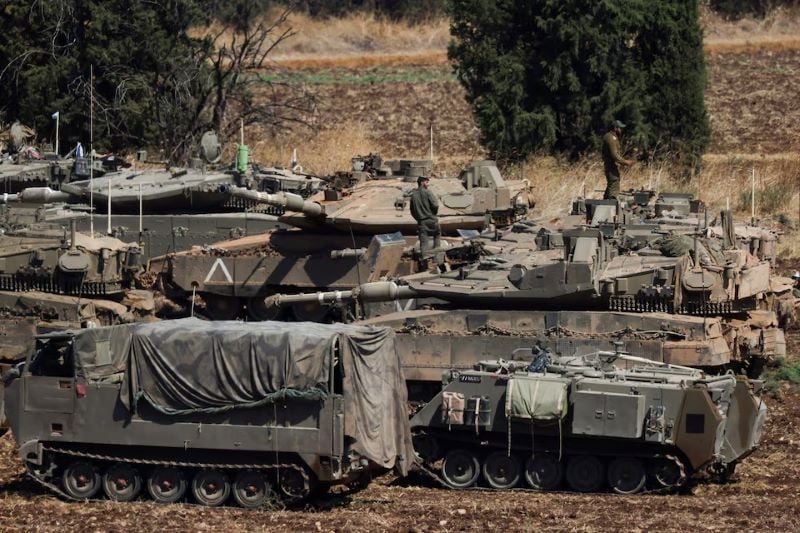
Israel's ground offensive in Lebanon is the latest cross-border operation in a half-century history of tensions with foes in its northern neighbour:
Israel made its first incursion into Lebanon when its army invaded part of the country's south from March 14 to 21, 1978.
"Operation Litani" was condemned by the United Nations, which called on Israel to withdraw its forces from Lebanese territory -- a withdrawal Israel would only finally complete 22 years later on June 16, 2000. Israeli troops entered up to 40 kilometres (25 miles) beyond the border in a bid to push the Palestine Liberation Organisation (PLO) beyond the Litani River and force them to retreat towards Saida or Beirut.
The UN Security Council unanimously passed Resolution 425 on March 19, which established the United Nations Interim Force (UNIFIL) still in operation today.
But after the Israeli army's formal withdrawal Israel indirectly occupied 700 square kilometres by establishing Lebanese proxy militias to maintain control of the area. Tens of thousands of Lebanese refugees fled to the southern suburbs of Beirut, which then became Hezbollah's bastion.
On June 6, 1982, the Israeli army returned in a wider-ranging operation it dubbed "Peace for Galilee".
Attempting to root out the PLO from Beirut and end deadly raids by Palestinian fighters on Israel, Israeli soldiers laid siege to the Lebanese capital.
By the end of 1982 nearly 20,000 had died and 30,000 more were injured in the invasion, according to Lebanese authorities. Those include the mainly Palestinian refugee or Lebanese Shia victims of the Sabra and Shatila massacre, perpetrated by Lebanese Christian militias backed by Israel.
Between the end of August and the beginning of September, PLO leader Yasser Arafat and more than 11,000 Palestinian fighters left Lebanon under international supervision.



1731486962-0/liam-(10)1731486962-0-165x106.webp)


1731484086-0/Copy-of-Untitled-(33)1731484086-0-270x192.webp)











COMMENTS
Comments are moderated and generally will be posted if they are on-topic and not abusive.
For more information, please see our Comments FAQ